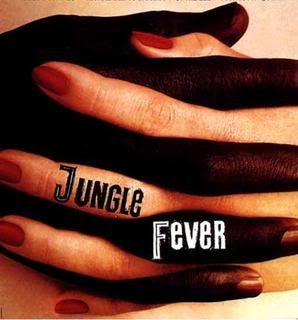Sharing is Caring!
Jungle Fever
Harlem is one of the Northeast's historically black districts and was once the vibrant hub of urban black life, but, by the time that Spike Lee directed this film, Harlem had undergone a great deal of gentrification.
Gentrification uplifts communities by attracting high clientele to previously depressed neighborhoods. Unfortunately, gentrification does not necessarily bring increased diversity. In many cities and communities in the Northern United States segregation occurs on a grid.
For instance, one block mostly white while another contiguous block may be all African-American, though in the modern day the disparity is more economic than racial.
The protagonist of the film, Flipper, is a successful professional in New York. He has it all, the American dream---complete with a wife and adorable daughter.
From the outside looking in, Flipper has everything he could have ever dreamed of in his home and in Harlem, but somehow Flipper wants more. Without his hubris Flipper would be the hero in this film, much like a Greek tragedy Flipper expedites his own undoing.
Gator is a key character in the film as well as Flipper's wife, Drew. Drew is the strong black woman born out of the 1960s and raised on the tunes of Aretha Franklin. Plainly put, Drew's strong-willed, so much so that at times she appears cold.
However, Drew also has a passive, subtle strength and though less educated than her husband Flipper has a deep understanding of race as it pertains to relationships. Drew and Flipper are soul mates, as both of them have a sometimes cataclysmic determination.
Angela, Flipper's temp/secretary starts working at the firm, her introduction to the office weakens the once pure Flipper. Angela is not the sort of temp he wanted working under him. Angela has an inordinate amount of vulnerability and acts as a foil to Drew.
Angela and Flipper are attracted to one another physically, but lack the emotional connection that Flipper and Drew have all along. Detractors only weaken their bond, which crumbles as it becomes more of a protracted form of protest rather than love affair.
Paulie, Angela's townie boyfriend is a pathetic employee at his father's Italian store. Angela and Flipper share similar skill levels, but Angela has greater aspirations---at least initially. Angela views her relationship with Paulie as a laborious task that is preserved mostly through pressure from her friends and family.
Despite Angela's infidelity, Paulie remains open-minded in many ways which shows that he may act and sound like a townie, but his mind is elevated. Angela never appreciates Paulie's open-mindedness.
Flipper although charming can be cruel. He, like his father, a Baptist minister revile their family member Gator because of his supposed lack of self-control. Gator walks the streets as a beggar and crackhead. Gator and Flipper both have vices.
Gator in many ways is a no count son, but he is funny and has a good heart. The reverend's wife, Lucinda recognizes her son's humanity and allows him to enter her home against her husband's wishes.
Flipper becomes increasingly self-involved and subsequently drives everything that is invaluable in the world away from him.
The film challenges the way we view the Church and Christianity, drug use/abuse in the inner-city, social mobility, racism, sexuality,violence, patriarchy, human rights, love, lust, racialism, class stratification, ethnic relations, and Corporate America. Such a multifaceted contribution to American cinema deserves a first, second, and third glance.
I highly recommend the film "Jungle Fever" as the artistry alone fosters discourse for the unwashed masses.
Please Re Tweet!
